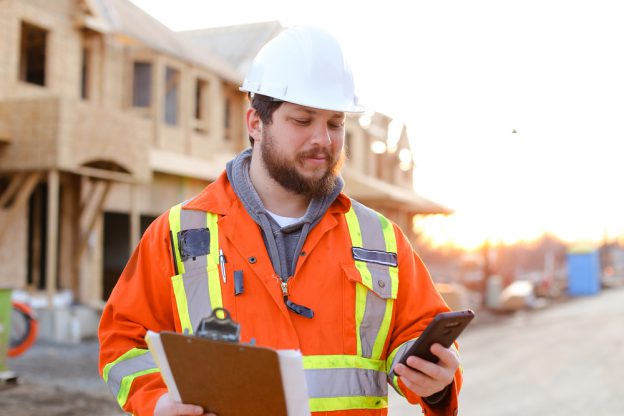If you’re a new contractor in California – whether you’re looking to become a Class B general contractor or a Class C specialty contractor or anything in between – you need to know your bonds.
In fact – at the very least, you’ll need to have a contractor’s bond to even get your CSLB contractor’s license.
In this article, we’ll cover all the basics for what bonds you need to start the year off with a shiny new contractor’s license. This article will only cover the essentials – if you want to deepen your understanding of bonds, check out our Comprehensive Guide to Bonds.
Contractors State License Board Bond Requirements
What Is the Contractors State License Board?
The Contractors State Licensing Board (CSLB) is responsible for all contractors’ licenses in California. The CSLB handles all 300,000 contractors in the state of California – which is no small feat.
The CSLB’s main job is to make sure that contractors meet safety and craftsmanship standards to protect consumers and businesses from bad actors. They do this via the CSLB contractor’s license, which ensures a common standard.
Contractors License Bonds
In order to get your CSLB license, one must first meet the CSLB’s bond requirements – which have actually just changed as of January 1 of this year.
The primary bond that all contractors – regardless of classification, trade, tenure, experience, age, or type of work – are required to have at all times is a contractor bond.
The bond guarantees that a contractor will adhere to all contractual obligations laid out in the contract. If the terms are not met due to the contractor’s actions, the surety company covers the debts, up to the amount of the bond.
It’s important to note that even with a contractor’s bond, the contractor is ultimately responsible for repayment of the damages to the bond company. This bond is designed to protect homeowners against sketchy contractors by giving them at least enough money to cover most construction costs – although it’s often not enough.
Thanks to Senate Bill 607, as of January 1, 2023, the CSLB increased the principal bond limits for contractors from $12,500 or $15,000 to $25,000 for all contractors.
A Word About Insurance
It’s important to note that the CSLB requires additional types of protective measures in the form of insurance.
Insurance operates differently from bonds – covering the amount without needing repayment from the contractor – but offers the same guarantee of payment in the case of an issue.
The CSLB requires one type of insurance in order to receive or renew your license: Workers’ Compensation insurance. There are exceptions to this rule, but it’s de facto necessary.
The Main Types of CSLB Bonds
- Contractor’s Bond: As we’ve covered, this is the main and most important bond required by the CSLB. Every contractor must have a contractor’s bond to receive their CSLB license. It must be written by a surety company endorsed by the CSLB and must be in the amount of $25,000.
- Bond of Qualifying Individual: Required if your license is qualified by a Responsible Managing Employee or Officer who doesn’t own at least 10% of the corporation’s voting stock. This bond also has a $25,000 limit.
- Disciplinary Bond: Necessary if a contractor’s license has been revoked due to violations. It is an additional bond with a $25,000 limit and must remain in effect for at least two years.
- Workers’ Comp: For contractors operating as LLCs, a unique $100,000 LLC Employee/Worker Bond is required, providing extra protection for employees and workers.
- Liability Insurance: For LLCs with five or fewer employees, you need to have liability insurance in the amount of $1,000,000.
Can You Get A Bond With Bad Credit?
Having bad credit can make obtaining a bond more challenging but not impossible – it’s not like buying a house or other situation where you are raked over the coals and cooked until crispy.
On the contrary, the construction industry is filled with competent, good people who have bad credit. You’d be lucky to find a job site without a good number of sub-600 credit scores.
That’s why many surety bond companies offer bonds for applicants with less-than-perfect credit. The trade-off is that you pay a higher premium rate.
Visit our Comprehensive Bond Guide for more information.
Conclusion
Bonds – specifically contractors bonds – are an essential part of the construction industry in California, creating a safety net for both individuals and businesses looking to get work done.
With a contractor bond, the client will receive some sort of compensation, so that they can at least come away with something in case they run across the small percentage of construction contractors who want to take advantage of people.
If you’re a contractor, make sure you get your bonds from one of the CSLB’s approved list of bond providers. The process should be quick, easy, and streamlined for anyone in the industry.
